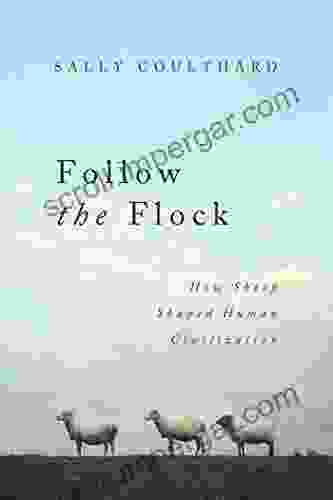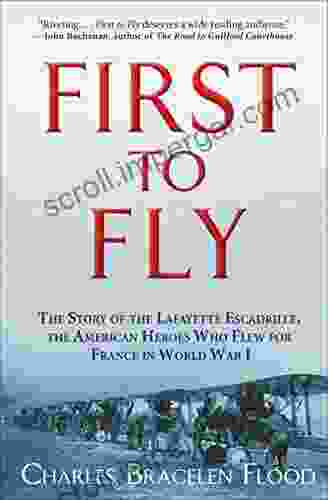Follow the Flock: How Sheep Shaped Human Civilization

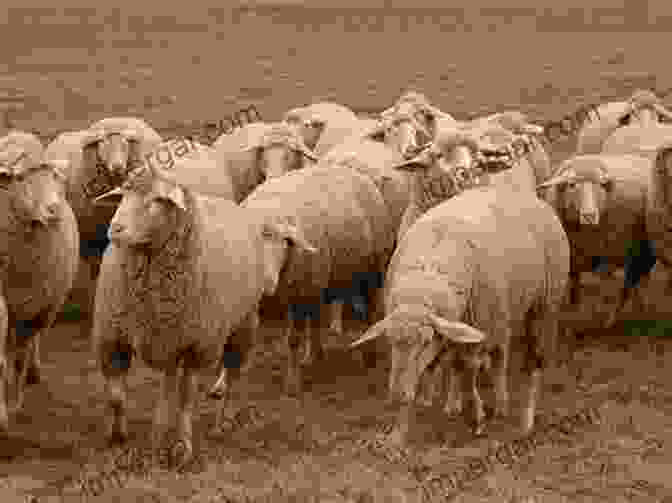
4.4 out of 5
| Language | : | English |
| File size | : | 10887 KB |
| Text-to-Speech | : | Enabled |
| Screen Reader | : | Supported |
| Enhanced typesetting | : | Enabled |
| X-Ray | : | Enabled |
| Word Wise | : | Enabled |
| Print length | : | 314 pages |
Sheep have been a part of human civilization for thousands of years. They have provided us with food, clothing, shelter, and even inspiration. In Follow the Flock, historian John M. Cooper tells the fascinating story of the sheep's impact on our world.
Sheep in the Ancient World
The earliest evidence of sheep domestication dates back to the Neolithic period, around 10,000 BC. Sheep were one of the first animals to be domesticated, and they quickly became an important part of human societies. In the ancient world, sheep were used for a variety of purposes, including:
* Food: Sheep were a major source of food for ancient peoples. Their meat was eaten, and their milk was used to make cheese and yogurt. * Clothing: Sheep's wool was used to make clothing. Wool is a warm and durable material, and it was used to make a variety of garments, including cloaks, tunics, and blankets. * Shelter: Sheepskins were used to make tents and other shelters. Sheepskins are waterproof and windproof, and they provided protection from the elements. * Sacrifice: Sheep were often used as sacrifices in religious ceremonies. Sheep were seen as a symbol of purity and innocence, and they were often offered to the gods in exchange for favors.
Sheep in the Middle Ages
During the Middle Ages, sheep continued to play an important role in human societies. In Europe, sheep were the primary source of wool for the textile industry. Wool was used to make a variety of fabrics, including cloth, felt, and tapestry. The wool trade was a major source of wealth for many European countries.
In addition to their economic importance, sheep also played a role in the social and cultural life of the Middle Ages. Sheep were often used as symbols of wealth and status. Wealthy landowners often kept large flocks of sheep, and they used them to display their wealth. Sheep were also featured in art and literature, and they were often depicted as symbols of peace and prosperity.
Sheep in the Modern World
In the modern world, sheep continue to play an important role in human societies. Sheep are still used for food, clothing, and shelter, and they are also used in a variety of other ways. For example, sheep's wool is used to make insulation, and sheep's milk is used to make a variety of dairy products, including cheese, yogurt, and ice cream.
Sheep have also played a role in the development of modern science and medicine. In the 19th century, Gregor Mendel used sheep to develop his laws of inheritance. Mendel's laws of inheritance are the foundation of modern genetics. In the 20th century, sheep were used to develop a number of important vaccines, including the polio vaccine.
Sheep have played a major role in shaping human civilization. They have provided us with food, clothing, shelter, and even inspiration. In Follow the Flock, historian John M. Cooper tells the fascinating story of the sheep's impact on our world.
Free Download your copy of Follow the Flock today!
4.4 out of 5
| Language | : | English |
| File size | : | 10887 KB |
| Text-to-Speech | : | Enabled |
| Screen Reader | : | Supported |
| Enhanced typesetting | : | Enabled |
| X-Ray | : | Enabled |
| Word Wise | : | Enabled |
| Print length | : | 314 pages |
Do you want to contribute by writing guest posts on this blog?
Please contact us and send us a resume of previous articles that you have written.
 Book
Book Novel
Novel Page
Page Chapter
Chapter Text
Text Story
Story Genre
Genre Reader
Reader Library
Library Paperback
Paperback E-book
E-book Magazine
Magazine Newspaper
Newspaper Paragraph
Paragraph Sentence
Sentence Bookmark
Bookmark Shelf
Shelf Glossary
Glossary Bibliography
Bibliography Foreword
Foreword Preface
Preface Synopsis
Synopsis Annotation
Annotation Footnote
Footnote Manuscript
Manuscript Scroll
Scroll Codex
Codex Tome
Tome Bestseller
Bestseller Classics
Classics Library card
Library card Narrative
Narrative Biography
Biography Autobiography
Autobiography Memoir
Memoir Reference
Reference Encyclopedia
Encyclopedia Catherine Anne Lewis
Catherine Anne Lewis Dave Anderson
Dave Anderson Caitlin Major
Caitlin Major Garry J Shaw
Garry J Shaw Cecil Lewis
Cecil Lewis Caroline Foster
Caroline Foster Jacques Lebon
Jacques Lebon Fernando Malkun
Fernando Malkun Candace Ellicott
Candace Ellicott E Benjamin Skinner
E Benjamin Skinner Carrie Daws
Carrie Daws Paul Chatterton
Paul Chatterton Catherine Wilson
Catherine Wilson Cathy Lamb
Cathy Lamb Srikanth Pilla
Srikanth Pilla Terice Champion
Terice Champion Keith Weston
Keith Weston Jacob Shell
Jacob Shell Cadwallader Colden
Cadwallader Colden Meredith Leyva
Meredith Leyva
Light bulbAdvertise smarter! Our strategic ad space ensures maximum exposure. Reserve your spot today!

 Gabriel MistralUnveiling the Hidden World of the English Republican Exiles in Europe: A...
Gabriel MistralUnveiling the Hidden World of the English Republican Exiles in Europe: A...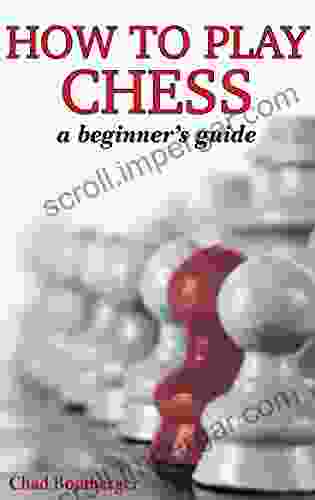
 Guillermo BlairMaster the Game of Chess: Your Ultimate Guide to Strategy, Tactics, and...
Guillermo BlairMaster the Game of Chess: Your Ultimate Guide to Strategy, Tactics, and...
 Adrien BlairAdvances in Clinical Chemistry ISSN 63: A Comprehensive Guide to the Latest...
Adrien BlairAdvances in Clinical Chemistry ISSN 63: A Comprehensive Guide to the Latest... Colin FosterFollow ·10.8k
Colin FosterFollow ·10.8k Guillermo BlairFollow ·11.3k
Guillermo BlairFollow ·11.3k Arthur C. ClarkeFollow ·9.5k
Arthur C. ClarkeFollow ·9.5k Franklin BellFollow ·13k
Franklin BellFollow ·13k Branden SimmonsFollow ·15.4k
Branden SimmonsFollow ·15.4k Albert CamusFollow ·8.2k
Albert CamusFollow ·8.2k Nathaniel HawthorneFollow ·2k
Nathaniel HawthorneFollow ·2k Jedidiah HayesFollow ·10.9k
Jedidiah HayesFollow ·10.9k

 Henry Hayes
Henry HayesVery Short Introductions: A Gateway to Knowledge...
In the realm of academia, where vast oceans of...
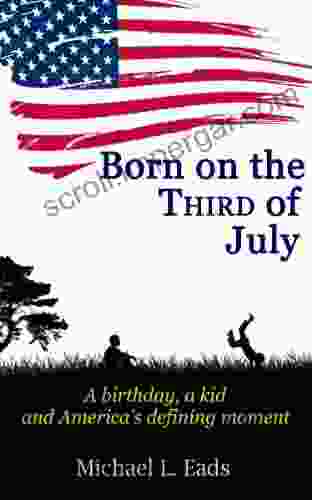
 Jean Blair
Jean BlairBorn on the Third of July: An Unforgettable Journey of...
Born on the Third...

 Benjamin Stone
Benjamin StoneEnvironmental Offsets: Striking a Balance between...
In the face of pressing environmental...

 Colin Foster
Colin FosterGirl With Power: My Boyhood Bully Diary
In this gripping and...

 Colin Foster
Colin FosterUnveiling the Unseen: The Collected Works of Charles Fort
Prepare to venture into...

 Gabriel Mistral
Gabriel MistralUnveiling the Hidden World of the English Republican...
Dive into the captivating world of 'The...
4.4 out of 5
| Language | : | English |
| File size | : | 10887 KB |
| Text-to-Speech | : | Enabled |
| Screen Reader | : | Supported |
| Enhanced typesetting | : | Enabled |
| X-Ray | : | Enabled |
| Word Wise | : | Enabled |
| Print length | : | 314 pages |


